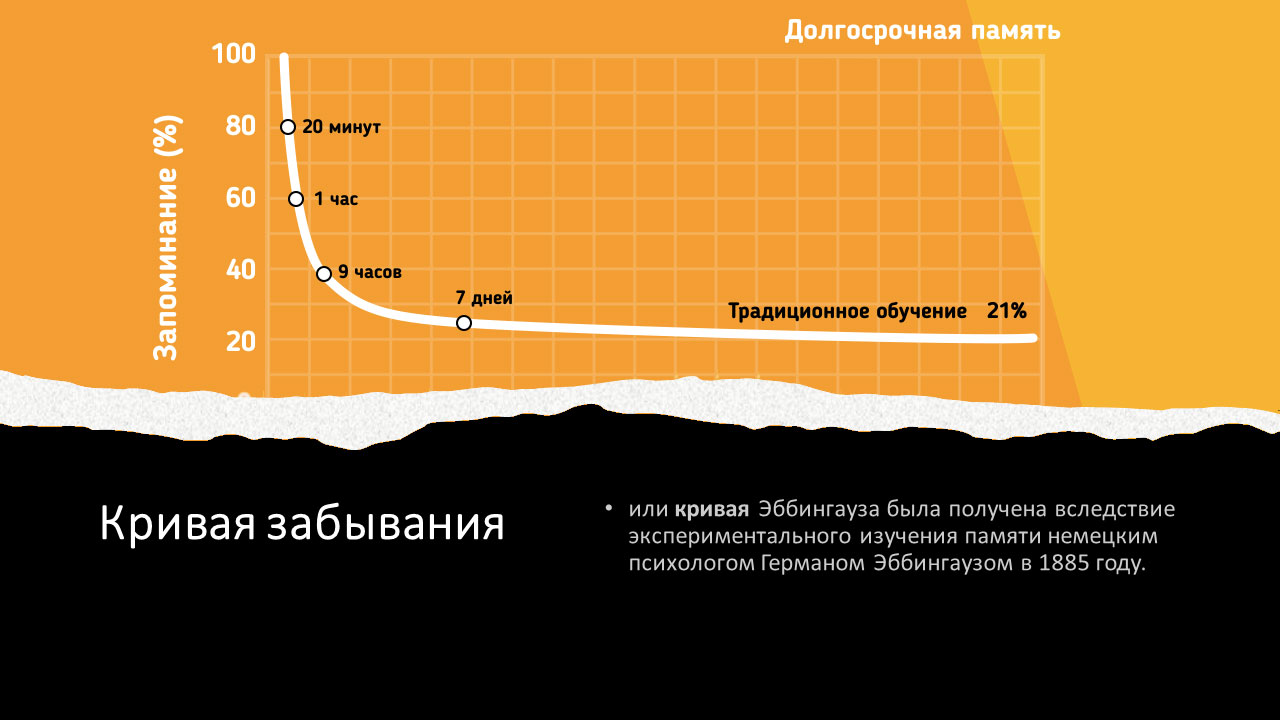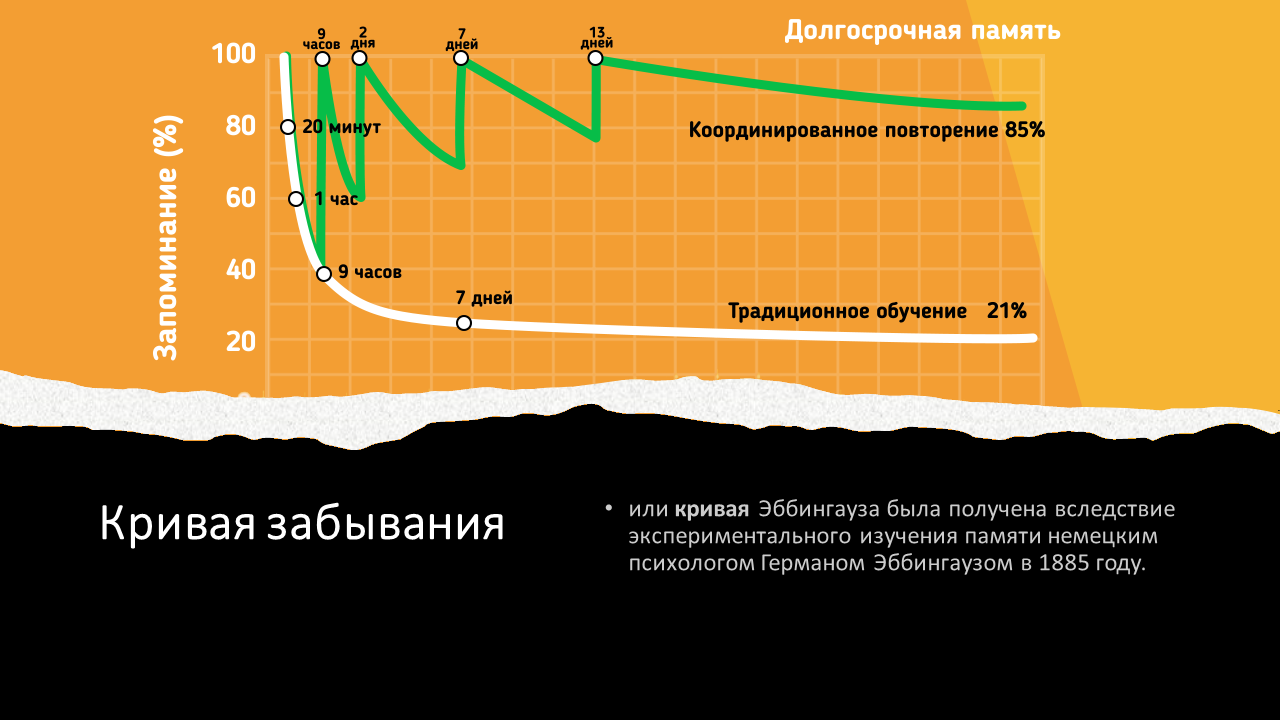Is taking one hour a week of Russian language enough or not?
To answer this question, I invite you to learn how our memory works. Let’s view the forgetting curve. It is the result of experiments conducted by the German scientist Hermann Ebbinghaus in 1885. Here we see the following:

When we just start learning new material, we remember almost everything.
If we have studied the material, but haven’t revised it, then after 20 minutes only 80% of what we have learned remains in our memory.
Thus, after one hour, if we haven’t revised the material, only 60% of the learned material remains. After nine hours only 40% remains. So what will remain after a week? Only 20% of the learned material.
Hence, by taking one hour a week of Russian language, we will remember only 20% of the material, and the other 80% we will have to learn again. That’s why I don’t expect a great progress from classes conducted once a week; the result is predictable.
Certainly, teachers and parents want children to remember as much information as possible, so that they can learn a language and speak it. But what should we do for that?
Let’s try to make a memorization straight out of the forgetting curve. When we learn the material and then revise it after nine hours, the line leaps up to the point of 100% again. Look further.

If we revise it again after two days, then again 100% of learned material remains in our memory. Revise it after a week, and again we reach the point of 100%.
What is the conclusion? It is as old as the hills: practice makes perfect.
Theoretically, it should be done the following way:
- Classes for 30 to 40 minutes, two to three times a week (or more often).
- Homework in between the lessons. For example, you have Russian on Monday and Friday — in that case do your homework on Wednesday.
My course “Soroka: Russian as a Foreign Language” is based on constantly revised material. During learning, we constantly drill the words and word phrases in various combinations and situations. We do it to remember them.
As you remember, I have already told you about the training aid named “Three Bogatyrs” (“Three Warriors”) and about drilling.
For those who have already watched these videos, I recommend watching them from the new perspective. For those who haven’t watched them, it’s high time you did.
For those who love reading more, you can read about the “Three Bogatyrs” training aid and oral drilling in my blog.
Have a good revising!
Is taking one hour a week of Russian language enough or not?
To answer this question, I invite you to learn how our memory works. Let’s view the forgetting curve. It is the result of experiments conducted by the German scientist Hermann Ebbinghaus in 1885. Here we see the following:
When we just start learning new material, we remember almost everything.
If we have studied the material, but haven’t revised it, then after 20 minutes only 80% of what we have learned remains in our memory.
Thus, after one hour, if we haven’t revised the material, only 60% of the learned material remains. After nine hours only 40% remains. So what will remain after a week? Only 20% of the learned material.
Hence, by taking one hour a week of Russian language, we will remember only 20% of the material, and the other 80% we will have to learn again. That’s why I don’t expect a great progress from classes conducted once a week; the result is predictable.
Certainly, teachers and parents want children to remember as much information as possible, so that they can learn a language and speak it. But what should we do for that?
Let’s try to make a memorization straight out of the forgetting curve. When we learn the material and then revise it after nine hours, the line leaps up to the point of 100% again. Look further.
If we revise it again after two days, then again 100% of learned material remains in our memory. Revise it after a week, and again we reach the point of 100%.
What is the conclusion? It is as old as the hills: practice makes perfect.
Theoretically, it should be done the following way:
- Classes for 30 to 40 minutes, two to three times a week (or more often).
- Homework in the middle of the lessons. For example, you have Russian on Monday and Friday — in that case do your homework on Wednesday.
My course “Soroka: Russian as a Foreign Language” is based on constantly revised material. During learning, we constantly drill the words and word phrases in various combinations and situations. We do it to remember them.
As you remember, I have already told you about the training aid named “Three Bogatyrs” (“Three Warriors”) and about drilling.
For those who have already watched these videos, I recommend watching them from the new perspective. For those who haven’t watched them, it’s high time you did.
For those who love reading more, you can read about the “Three Bogatyrs” training aid and oral drilling in my blog.
Have a good revising!
Turn on English subtitles.

